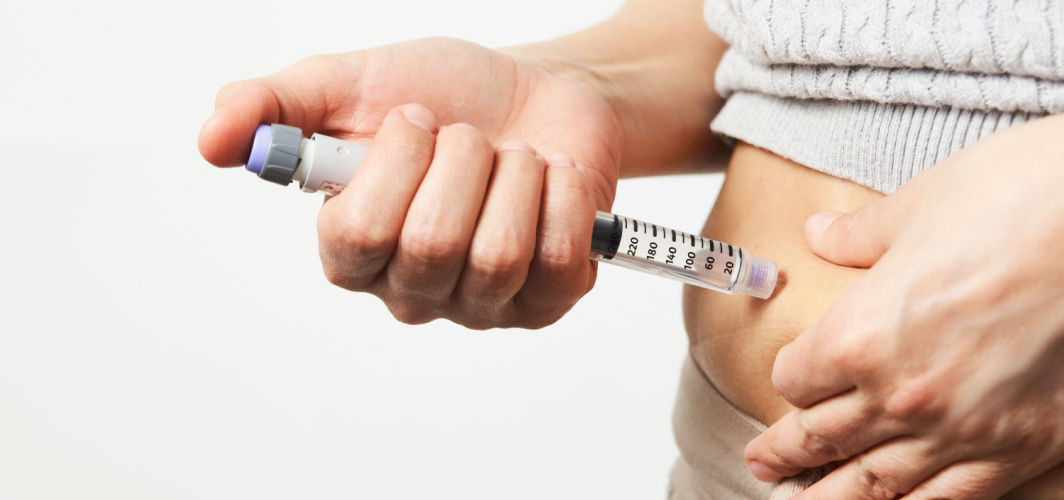Diabetes Management
Boosting Sleep Quality and Duration for Better Diabetes Management
1 min read
By Apollo 24|7, Published on - 22 February 2024
Share this article
0
0 like
.jpg?tr=q-80)
The lifetime risk of diabetes for 20-year-olds is 55.5% for males and 64.6% for females.
Poor sleep quality and brief sleep duration significantly contribute to this escalating prevalence. If you're navigating your journey with diabetes, understanding the relationship between sleep and diabetes can be a powerful tool in managing your condition.
Managing Your Sleep Cycle
Regulating your sleep cycle is imperative for effectively managing diabetes. Here are some ways to achieve a consistent sleep schedule:
- Fix bedtime and wake-up time: Consistency helps your body clock regulate better sleep.
- Avoid daytime naps: Excessive daytime napping might interfere with nighttime sleep.
Creating a Restful Environment
A restful, soothing environment promotes better sleep. Here’s how you can create one:
- Maintain a dark, quiet bedroom: A calm environment helps induce your sleep. You can also use earplugs or eye masks if required.
- Optimise temperature: A cool room often enhances sleep quality.
Physical Activity and Healthy Habits
Incorporating regular physical activity into your routine can significantly improve both your sleep quality and blood glucose control. Here are some habits that can help:
- Regular exercise: Physical activity helps reduce anxiety, promoting better sleep.
- Avoid caffeine and alcohol: Both substances can disrupt the rhythm of your sleep.
In conclusion, addressing the quality and duration of your sleep plays a significant role in managing diabetes effectively. By implementing these simple strategies, you can enhance your sleep quality as well as duration, leading to better glycemic control, improved well-being, and a healthier lifestyle.
Diabetes Management
Consult Top Diabetologists
View AllLeave Comment
Recommended for you

Diabetes Management
Regulating Blood Sugar While Using Hormonal Birth Control: Guide for Diabetic Women
Diabetes and hormonal birth control can be a tricky combination to manage. Understanding how certain contraceptives can affect your blood sugar levels is crucial for maintaining good health. Careful selection of a birth control method combined with regular monitoring of your blood sugar and consistent doctor consultations can help you navigate this complex path.

Diabetes Management
How to Test for Insulin Resistance
To test for insulin resistance as a diabetic, common methods include fasting glucose and insulin tests. These help assess how your body manages blood sugar. Pay attention to risk factors like age, family history, and lifestyle. If diagnosed, focus on lifestyle changes—adopt a balanced diet, engage in regular exercise, and monitor your blood sugar levels. Early detection is key to effective management, empowering you to make informed choices for better health. Always consult with your healthcare provider for personalised guidance.
.jpg?tr=q-80)
Diabetes Management
Recognising the Early Signs of Diabetic Kidney Failure
Recognising the symptoms of kidney failure due to diabetes is crucial for early intervention and management. These can range from swelling and back pain to changes in urination patterns and severe confusion. If you experience any such symptoms, consult your doctor at once. Remember, alongside medical treatments, guided lifestyle modifications through initiatives like the Apollo Super 6 programme play a significant role in managing diabetes and its complications.
Subscribe
Sign up for our free Health Library Daily Newsletter
Get doctor-approved health tips, news, and more.
Visual Stories

8 Fruits That are Incredibly Healthy for Diabetes
Tap to continue exploring
Recommended for you

Diabetes Management
Regulating Blood Sugar While Using Hormonal Birth Control: Guide for Diabetic Women
Diabetes and hormonal birth control can be a tricky combination to manage. Understanding how certain contraceptives can affect your blood sugar levels is crucial for maintaining good health. Careful selection of a birth control method combined with regular monitoring of your blood sugar and consistent doctor consultations can help you navigate this complex path.

Diabetes Management
How to Test for Insulin Resistance
To test for insulin resistance as a diabetic, common methods include fasting glucose and insulin tests. These help assess how your body manages blood sugar. Pay attention to risk factors like age, family history, and lifestyle. If diagnosed, focus on lifestyle changes—adopt a balanced diet, engage in regular exercise, and monitor your blood sugar levels. Early detection is key to effective management, empowering you to make informed choices for better health. Always consult with your healthcare provider for personalised guidance.
.jpg?tr=q-80)
Diabetes Management
Recognising the Early Signs of Diabetic Kidney Failure
Recognising the symptoms of kidney failure due to diabetes is crucial for early intervention and management. These can range from swelling and back pain to changes in urination patterns and severe confusion. If you experience any such symptoms, consult your doctor at once. Remember, alongside medical treatments, guided lifestyle modifications through initiatives like the Apollo Super 6 programme play a significant role in managing diabetes and its complications.

